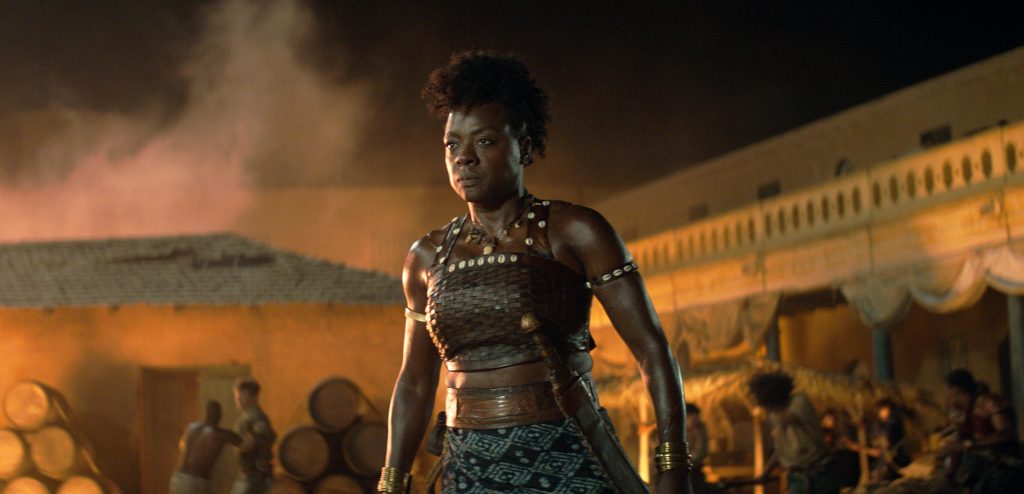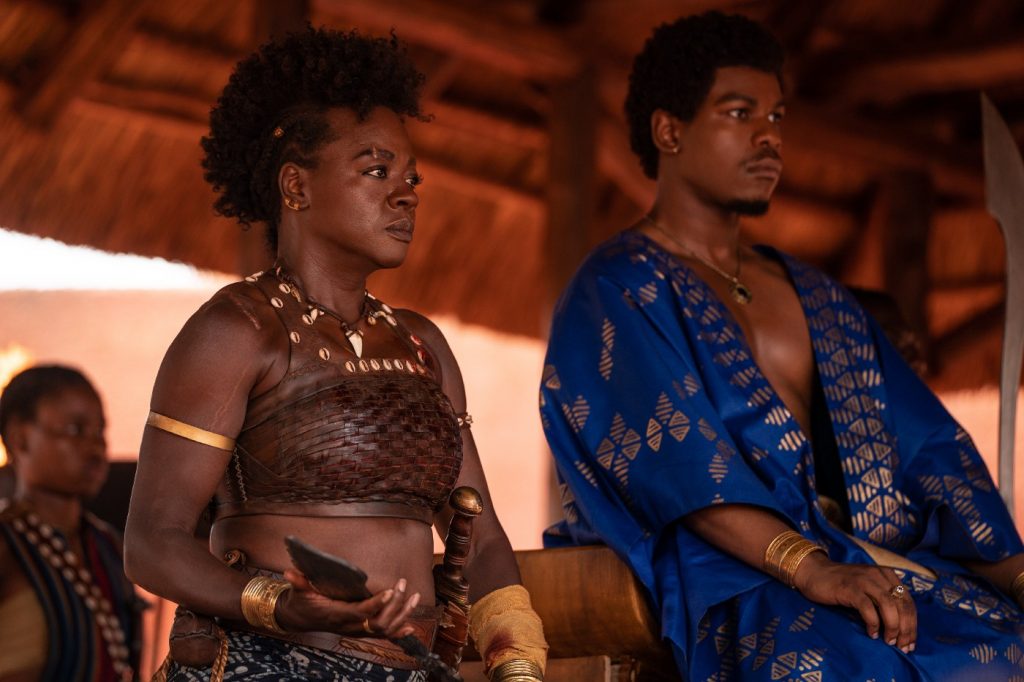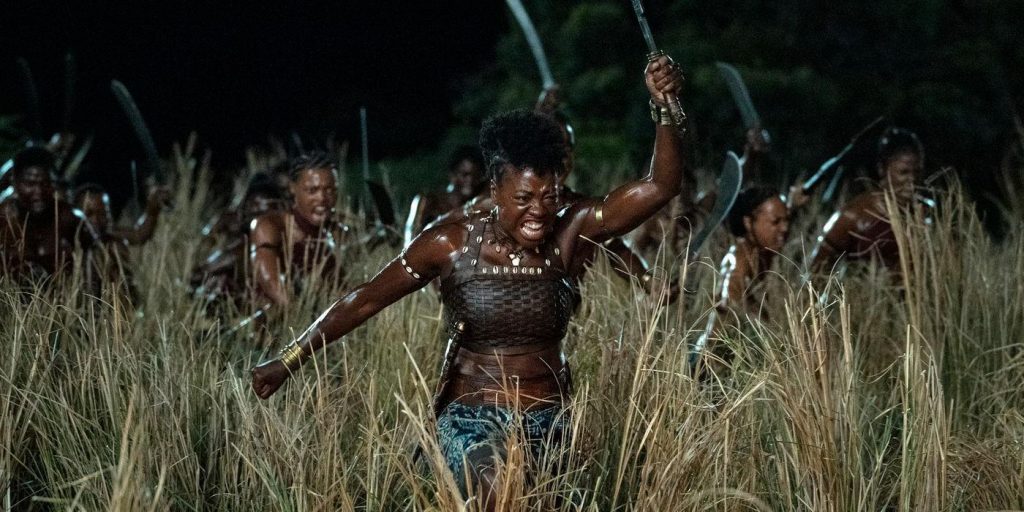I’ve often said over thirty-five years of film criticism that the films that attract me and my colleagues the most are movies that take us to a place we’ve never been before, or introduce us to people we would otherwise never have known.
That doesn’t necessarily mean “Period” films with the casts in powdered wigs and hoopskirts; it could be a film set one week ago – I mean, it could be The Wolf of Wall Street- after all, I have never been in a New York trading firm.
That is the strength of The Woman King; it’s set in the West African kingdom of Dahomey during the 1820s. We have never been there. The kingdom ceased to exist more than a century ago. We have never met the so-called Dahomey Amazons, the all-female unit of warriors who kicked ass. Lots of it.

Viola Davis is the titular character, a haunted woman who is the very embodiment of strength and courage. Her character, a hardened general, trains the next version of young women warriors who will take the mantle.
This is the kind of movie they used to call a Sword-and-Sandal film; a kind of epic that followed a well-worn template. There will be soldiers, they will go through training, and they will fight big battles. That is what the skeleton of The Woman King is.
But with a big, big difference: almost all women, almost all actors of color, a female director of color (Gina Prince-Bythewood), a female cinematographer, and a noted female editor.
Yes, the movie follows the waypoints of the genre for a little over two hours, so you may find things quite familiar. But as I say, you haven’t seen this movie set in this location with these actors.

The cast may look large onscreen, but this is all about Viola Davis’s performance. She projects the character’s qualities in such a way, that you forget how she broke your heart (and won an Oscar) for Fences not too many years ago. It seems there’s nothing she can’t do.
The film opened at #1 at the US box office, surprising some insiders. There has also been some controversy regarding the “gloss over” of the real kingdom’s involvement in slave trading. But movies are not history books, even if they wanted to be. You go into a film knowing that you are witnessing a work of fiction and, indeed, the director has said the narrative is largely fictionalized.
That’s an argument I stopped having about movies long ago. Gone with the Wind doesn’t tell the whole truth, either. And the new movie Blonde throws history out the window.

So it comes down to this: was I entertained? Yes, mostly. Does the film have the same liabilities as others from Hollywood’s era of Sword-and Sandal flicks? Yes, it does, meaning there’s a good helping of stiff dialogue, some slightly corny takes and a disregard of history in favor of art.
The Woman King is now in theaters| Rated PG-13 | 3 out of 4 Stars

